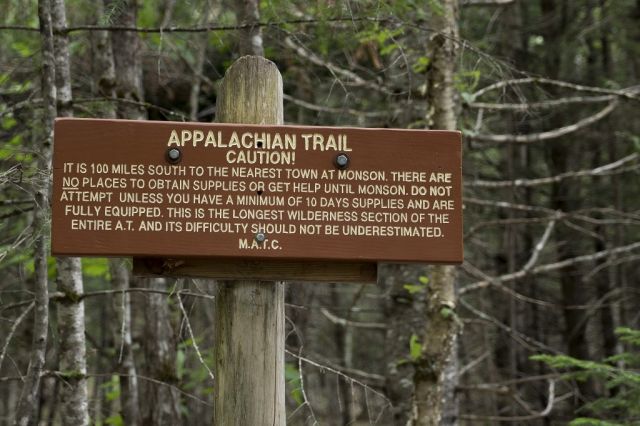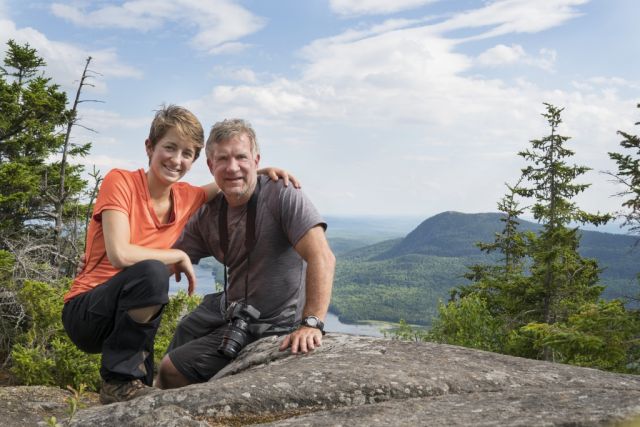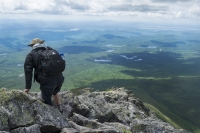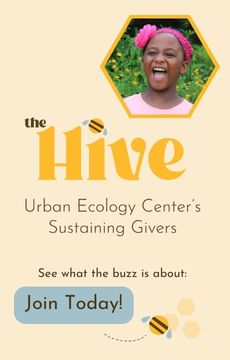That first day, we reached the peak of Katahdin, but couldn’t see through the fog. As we descended, the fog lifted and panoramic views of the mountains, lakes and valleys became visible. It gave an appreciation of how small we are in this world and how much there is to see when you take the time to look.
Over the next 11 days we would hike about 10-12 hours per day, camp and learn more about one another. The varying terrain was extraordinary but also strenuous. After Katahdin, the first 40 miles were relatively flat through lowlands but after that, the terrain became uneven and mountainous. We had to be prepared for anything: sudden lighting storms, deep mud with no way around, raging rivers we had to wade through and steep inclines that we had to scramble up. Although the hike was demanding, we were treated with continual breathtaking scenery and beautiful flowing waters. This was the experience of a lifetime.

[Erin] I have been on multi-day backpacking trips before but this was a new experience for me because of the length and remoteness of the trek. The hike was obviously physically hard due to the rough terrain and drastic elevation gains and losses. However, this trip presented mental challenges that I have not encountered before. Around day seven, I remember feeling tired of the monotonous routine of making breakfast, packing up camp, hiking all day, setting up camp, making dinner, sleeping, then starting over again. I wanted to be done, but the only way out was to move forward. That feeling would come in waves, but mostly I felt free, released from the busy world we live in every day and able to unplug from society. I was at nature’s whim and by being fully immersed in the woods for that long, I had to learn to respect it. I finally realized that whatever nature was going to throw at us was out of our control. By the end of the 120 miles we hiked, we learned to co-exist with nature rather than fight it. Those 11 days brought my dad and I closer together than we ever have been by teaching us to trust each other in the most difficult situations.
[Alan] Out in the wild there was no cell phone signal and no reminder of the pressures and distractions of daily life. The only two things to focus on were spending time with my daughter and taking care of basics needs (i.e. water, food, shelter and managing the terrain). The trip was a once in a lifetime opportunity where I could experience the beauty of nature and spend quality, uninterrupted time with my daughter. I got to see how grown up she was and how lucky I am to have such a great daughter. It was also a turning point for me as she became the teacher/coach and I became the student. She pushed me to accomplish things I would not have done on my own.

After our trip, we wanted to use our new perspectives to affect change for our climate. We started a fundraiser page and asked friends and family to sponsor us per mile we hiked. We would donate half of the money to the Urban Ecology Center and half to Mission Blue (who’s goal is to make nationally protected areas of the oceans). Our goal was to reach $1,000 dollars, but with overwhelming support, we raised a total of $1,690. We passed our fund-raising goal, but personally we got way more out of the adventure than we could have hoped.
Since moving to Milwaukee in February 2015, the Urban Ecology Center has always been a place of hope for me. I am often scared for the future of our climate, but the UEC remains strong in their mission to teach and protect nature. I volunteer at the centers regularly and donate what I can to give them the support they need. I am confident in the UEC’s ability to affect change because they have already changed me.





